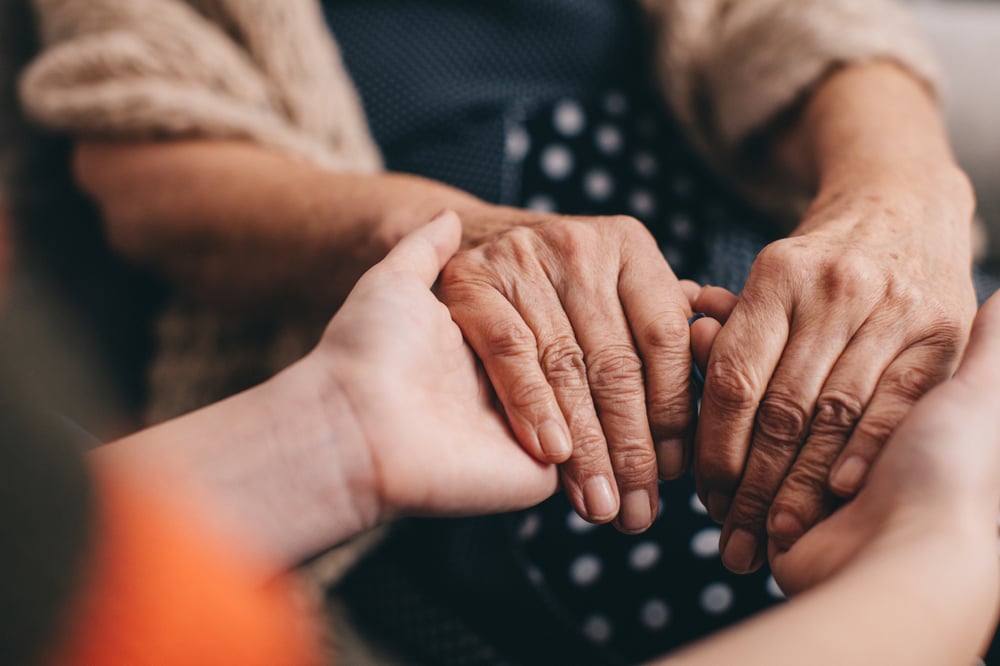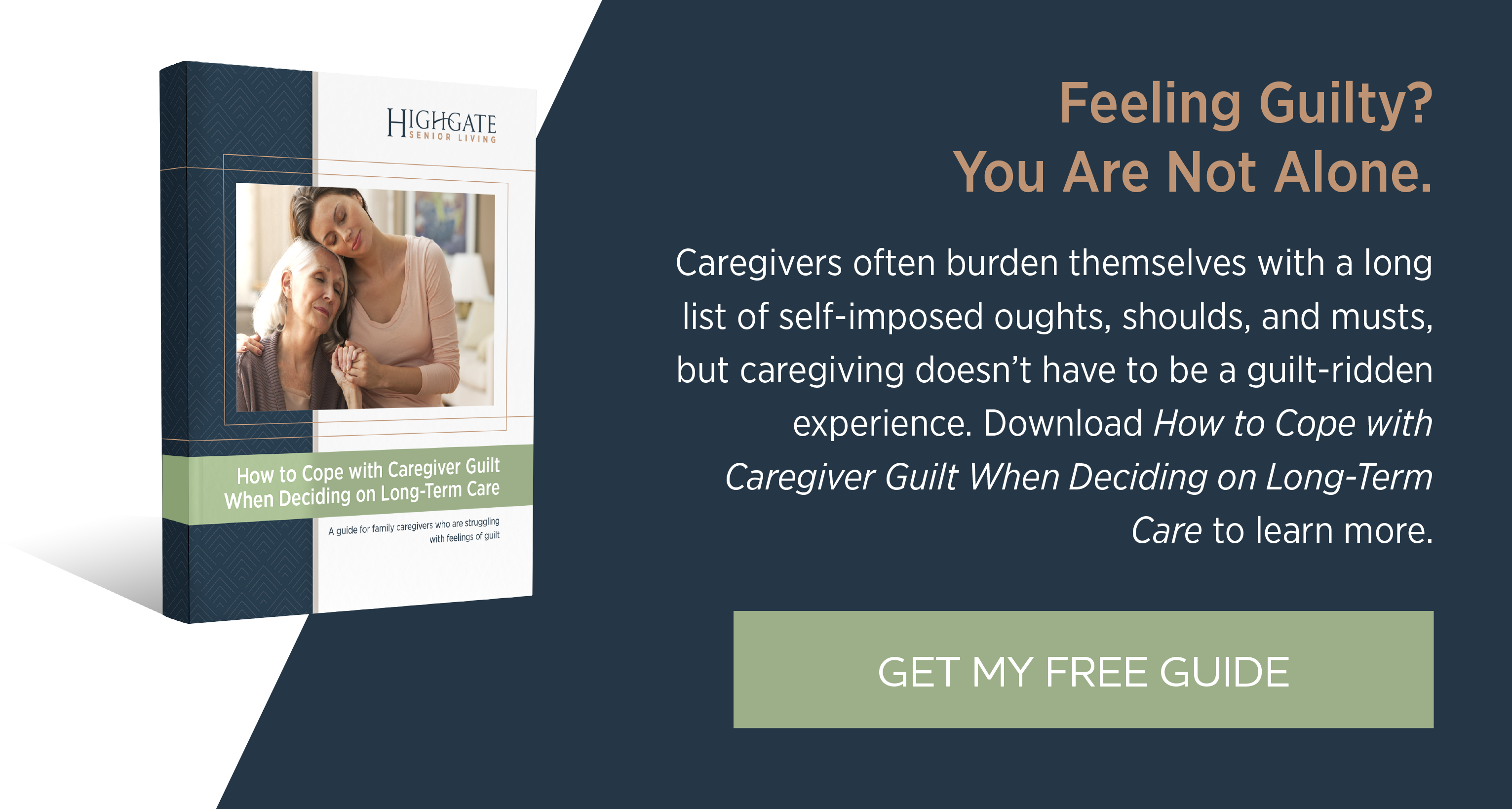 Caring for an aging loved one isn’t easy. From shopping and food preparation to dressing and grooming to researching care services and managing financial matters, family caregivers spend an average of 24.4 hours per week providing care, and one in four spends 41 hours or more per week providing care, according to Caregiving in the U.S. All of that physical, emotional and financial strain adds up to cause caregiver stress.
Caring for an aging loved one isn’t easy. From shopping and food preparation to dressing and grooming to researching care services and managing financial matters, family caregivers spend an average of 24.4 hours per week providing care, and one in four spends 41 hours or more per week providing care, according to Caregiving in the U.S. All of that physical, emotional and financial strain adds up to cause caregiver stress.
You may be experiencing caregiver stress if you:
- Feel like you’re on call almost all day
- Have little time for work
- Don’t have enough time to spend with other family members and friends
- Are overwhelmed by the amount of care your loved one needs.
Caregiver stress doesn’t only leave you feeling alone, easily irritated or sad; it can also lead to serious health problems.
The body responds to stress by releasing stress hormones, which makes your blood pressure, heart rate and blood sugar levels go up. If you don’t take steps to prevent or relieve caregiver stress, long-term stress can contribute to depression and anxiety, a weak immune system, obesity, a higher risk for chronic diseases, and problems with short-term memory or paying attention.
Caregiver stress isn’t just harmful for you. It’s not good for the person you’re caring for, either. Caregiver stress might cause you to make mistakes when giving medicines or irritability that leads to moodiness and triggers negative responses and actions.
So, how can you prevent or manage caregiver stress? Here are four ways to cope with caregiver stress so that you’re not only taking care of yourself, but also taking better care of your loved one and enjoying the rewards of caregiving.
Ask for Help
Caregiving is — or at least it should be — a team effort. If you have siblings, tell them about how you’re feeling and ask them to help with the caregiving responsibilities. Maybe your brother who lives nearby picks up groceries for you and your sister who lives out of state takes care of the finances and bills. If friends or neighbors offer to pitch in, say yes. Make a list of small tasks that others could easily take care of, such as driving your loved one to an appointment or sitting with them while you run an errand, and let them choose how they’d like to support you. Asking and accepting help will reduce your caregiver stress.
Use Relaxation Techniques
When you’re stressed, your body releases stress hormones. Counteract that stress response by invoking the relaxation response. There are many relaxation techniques that can help you reduce caregiver stress. Try a few of these to see which one works for you.
- Guided imagery: Mentally picture a place or situation that is peaceful and calm.
- Meditation: Sit comfortably, focus on your breathing and bring your mind’s attention to the present moment.
- Breath focus: Slow your breathing, and focus on taking deep breaths.
- Body scan: Take some deep breaths, then tighten and relax each muscle group at a time, starting at one end of your body and working your way to the other end.
Join a Support Group
A caregiver support group is a place where you can share your stories, get caregiving tips and help others with your own insights, and gain support from others who face similar experiences as you. There are local and online support groups for caregivers and benefits to both options. Local support groups will help you get out of the house and reduce any feelings of isolation you may be experiencing, and because the people in the support group are from your area, they'll be more familiar with local resources you can take advantage of. However, an online support group is great for people who want to access the group whenever it's convenient or when they need help most.
Take Care of Yourself
It’s easy to forget about your own health when you’re dealing with someone else’s health problems, but taking care of your health is critical. Keep on top of your doctor visits, and tell your doctor or nurse you are a caregiver. Also, tell them about any symptoms of depression or sickness you may have. Try to eat well, exercise and get plenty of rest. If you need to take advantage of a respite stay to do these things, do it! Respite stays provide caregivers with a temporary rest from caregiving, while their loved one continues to receive care in a safe environment, whether through in-home services or out-of-home respite programs such as adult day care centers and assisted living communities.
Taking steps to relieve caregiver stress helps prevent health problems, and making sure that you are healthy can help you be a better caregiver.







